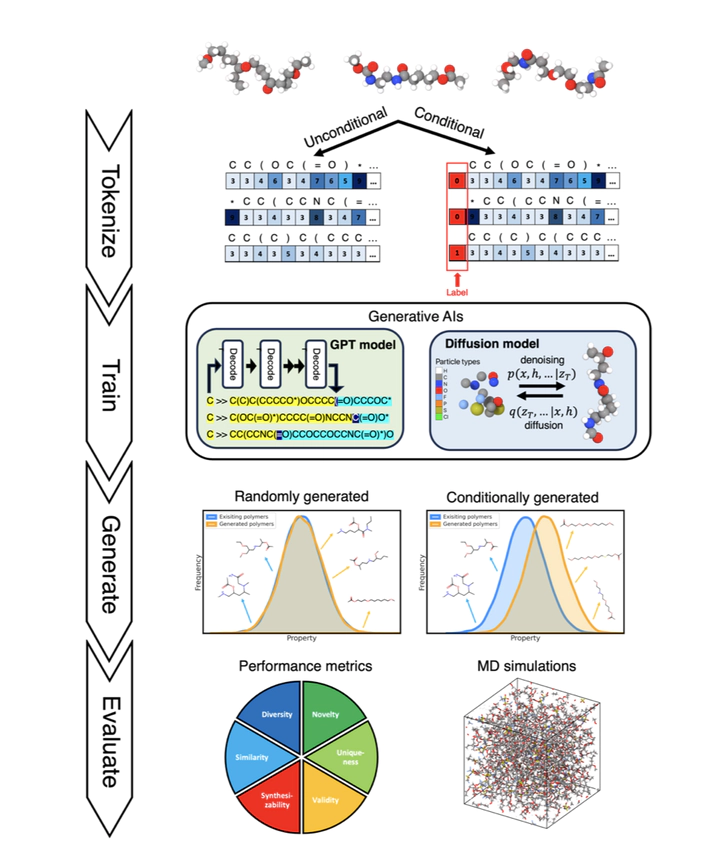De novo Design of Polymer Electrolytes with High Conductivity using GPT-based and Diffusion-based Generative Models

Abstract
Solid polymer electrolytes hold significant promise as materials for next-generation batteries due to their superior safety performance, enhanced specific energy, and extended lifespans compared to liquid electrolytes. However, the material’s low ionic conductivity impedes its commercialization, and the vast polymer space poses significant challenges for the screening and design. In this study, we assess the capabilities of generative artificial intelligence (AI) for the de novo design of polymer electrolytes. To optimize the generation, we compare different deep learning architectures, including both GPT-based and diffusion-based models, and benchmark the results with hyperparameter tuning. We further employ various evaluation metrics and full-atom molecular dynamics simulations to assess the performance of different generative model architectures and to validate the top candidates produced by each model. Out of only 45 candidates being tested, we discovered 17 polymers that achieve superior ionic conductivity better than any other polymers in our database, with some of them doubling the conductivity value. In addition, by adopting a pretraining and fine-tuning methodology, we significantly improve the efficacy of our generative models, achieving quicker convergence, enhanced performance with limited data, and greater diversity. Using the proposed method, we can easily generate a large number of novel, diverse, and valid polymers, with a chance of synthesizability, enabling us to identify promising candidates with markedly improved efficiency.